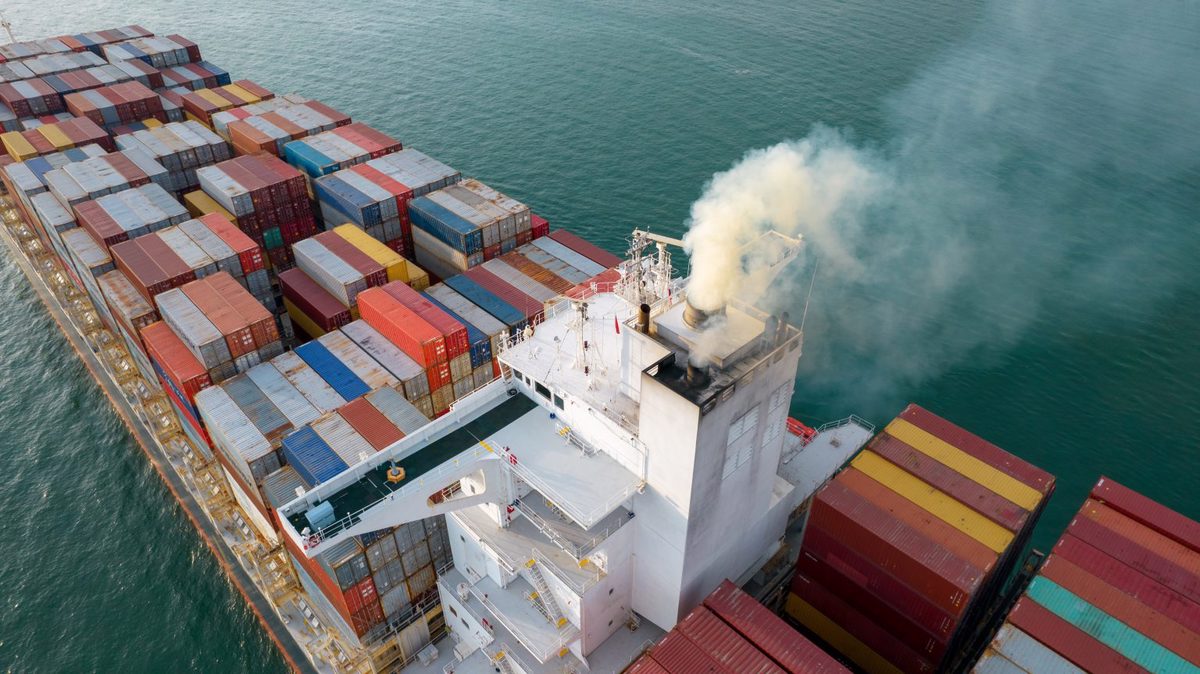The Week in Alternative Fuels 13 October 2023
This week's stories show that the shipping sector still has a long way to go before it can fully adopt low- and zero-emission fuels and technologies to meet its decarbonisation goals.
 PHOTO: Getty Images
PHOTO: Getty Images
“Decarbonising shipping requires urgent, large-scale cross-sector collaboration and government and international regulator support,” said Stephen Fewster, treasurer of the Poseidon Principles and managing director at the bank ING. The Poseidon Principles adopted the International Maritime Organisation's (IMO) revised strategy to consider well-to-wake (WTW) greenhouse gas (GHG) emissions in shipping financial reporting.
The Poseidon Principles aim to reduce the carbon footprint of the shipping industry by providing a framework for banks and other financial institutions to assess, disclose and manage the environmental impacts of their shipping portfolios. The idea is to put financial pressure on shipowners to reduce the WTW emissions of their vessels, as shipping financiers will consider these emissions in their lending decisions. However, fuels with zero-emission potential like ammonia and hydrogen can be hazardous. Bunkering of these fuels needs to be regulated properly to ensure ship and crew safety.
This is why the IMO's Sub-Committee on Carriage of Cargoes and Containers (CCC) is working on drafting interim guidelines for hydrogen, LPG and ammonia as bunker fuels. The International Bunker Industry Association (IBIA), meanwhile, says additional risk analysis and mitigation measures are needed. The regulations should address both safety concerns associated with hydrogen leaks as well as risks related to ammonia's toxic and corrosive properties, IBIA said.
Another area where the industry struggles, based on a Lloyd's Register (LR) report, is a lack of skilled workers and repair yards capable of handling fuels like ammonia and methanol. LR estimates that 9,000-12,900 large vessels could be converted to operate on ammonia or methanol by 2030. But only 15 shipyards can currently handle such retrofits. This could seriously delay conversions of existing vessels, LR warned.
Europe's e-fuel industry pushed for carbon capture and storage (CCS) and sustainable alternative fuels to be included as strategic net-zero technologies under the Net Zero Industry Act. An open letter, the Methanol Institute, FuelsEurope and others called for sustainable marine fuel production to be prioritised before rising demand creates shortages across Europe. Moreover, the report urged a focus on commercially available and technologically advanced CCS solutions.
A new Transport & Environment (T&E) report proposes a five-year plan for EU transport regulators. The European Parliament will hold elections in June next year, and new hands on deck presents an opportunity to reform the EU's emissions policies, T&E argues. The environmental organisation recommends aligning FuelEU Maritime's decarbonisation targets with the EU's net-zero-by-2050 goal and mandating 100% green fuel use for ships by 2050. Moreover, it proposes a $1.05 trillion climate investment plan for 2030 that would focus on the shipping sector's transition.
By Konica Bhatt
Here is our selection of top five alternative fuels stories from this week:
Poseidon Principles adopts IMO's revised well-to-wake strategy
Further work needed on draft guidelines for alternative marine fuels – IBIA
Insufficient shipyard capacity could stymie alternative fuel conversions – LR
E-fuel producers lobby EU to prioritise CCS and sustainable alternatives fuels






